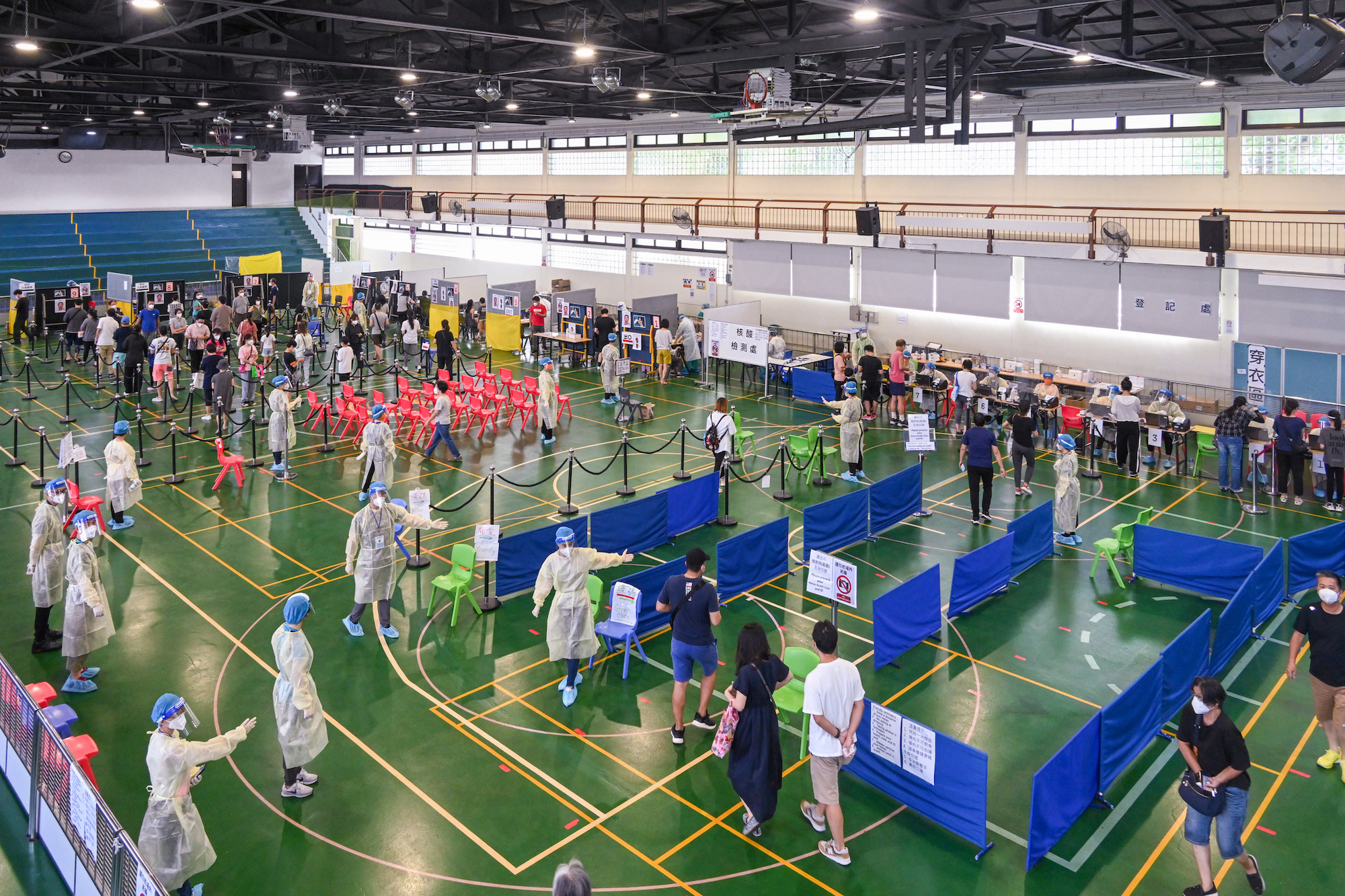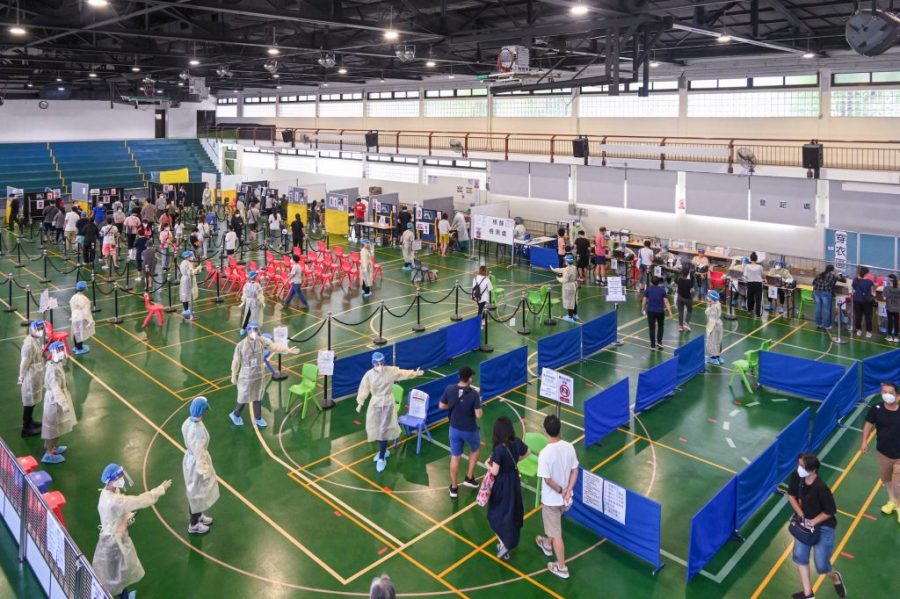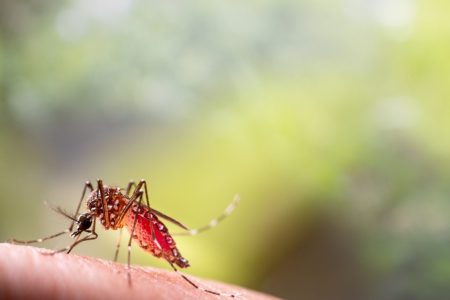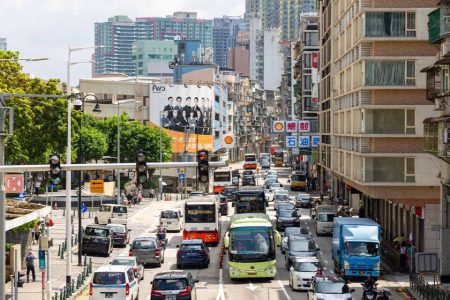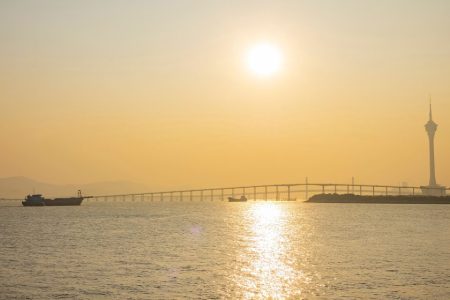The Macao government announced during yesterday’s daily Covid-19 press conference the inclusion of all Philippine passport holders in Macao, including Macao residents – numbering around 30,000 – among the city’s key groups required to undergo mandatory daily nucleic acid tests (NAT).
The Macao government said the decision was made based on 9.5 per cent of the 1,795 positive Covid-19 cases found in Macao since 18 June and the Filipino “cultural trait” to gather together, while Leong Iek Hou, Head of the Health Bureau’s Communicable Disease Prevention and Control Division said today that over the past two weeks of partial lockdown, 24.5 per cent of new Covid-19 cases found within the community were Filipino.
Some people in Macao have labeled the measure as discriminatory and political, to the extent of violating Macao Basic Law.
However, the Philippine Consul-General Porfirio M. Mayo Jr. has appealed to compatriots to remain calm and follow the local government’s instructions.
“To my nationals, stay calm, this is nothing political. It’s purely a health issue,” he told Macao News. “Even I have to do it.”
He added: “If I recall, last year they made the same announcement requiring nationals from other countries, particularly foreign workers, to take a daily NAT”, believing that there is a scientific basis for the measure.
Members of the Vietnamese and Nepalese communities in Macao were required to undergo four nucleic acid tests (NAT) – every other day – during an outbreak in October last year. On 22 June this year, Myanmar nationals were also required to take a NAT.
Nevertheless, the consulate is seeking more information and “clarification” regarding the 171 positive cases involving Filipino nationals, such as their job descriptions, as the consulate needs to report back to the Philippine government about the wellbeing of their nationals.
“What we’d like is a better understanding of how this policy came about. We’re not questioning the policy, just the scientific basis [of] why this was made,” Mayo stressed.
Asked about a statement published on Facebook by a Macao lawyer that claimed the measure is “illegal”, the diplomat said that the Philippine Consulate had no opinion.
Macao-based lawyer Paulo Carochas wrote on Facebook that the measure is “absolutely illegal, unreasonable and profoundly racist”, offering his service for free to the Philippine Consulate if they wish to take legal action against the Macao government.
He also told Macao News that the measure violates Article 25 of Macao Basic Law, which states all “Macao residents shall be equal before the law, and shall be free from discrimination, irrespective of their nationality, descent, race, sex, language, religion, political persuasion or ideological belief, educational level, economic status or social conditions”.
“The government has the obligation to be proportional on the measures that it takes and [ensure] the foundation of these decisions is bound on the principle of being fair or balanced,” he added. “Just because you hold a Philippine passport, it doesn’t mean you are prone to get or spread the virus.”
He continued: “Even the argument the government put forward about the [nearly] 10 per cent of the positive cases being Filipinos, I think it would be reasonable to ask where the other 90 per cent of the cases are from.”
“Ultimately it should be the consulate and the Philippine government that have a strong reaction against this measure”.
However, prominent Macanese lawyer Miguel de Senna Fernandes believes that the problem about the measure is “more of a miscommunication”. He said: “If the message about the measure is well delivered, I believe you won’t see this kind of problem.”
He added: “It’s all about what are the grounds for picking certain nationalities and what’s the reason behind it. If there is a measure or an order given to a certain group of people because of their nationality, of course it is illegal in Macao. But what I see here, taking all things into account, I think there’s some sort of miscommunication.
“I don’t think the authorities have thoroughly explained why the Filipino nationals [as a community have to undergo these mandatory NATs].That’s why I think the authorities should explain this very clearly.”
Senna Fernandes does not think that the measure is racially-driven and he does not see local authorities being racist towards the people in Macao.
“I simply don’t see this kind of [racist] nature coming from the authorities. I do think they have been under a lot of pressure since the pandemic began,” he underlined, insisting that he believes the government made the controversial measure with the aim of containing the city’s current Covid-19 outbreak.
Nevertheless, he appealed for measures and all other information announced at the daily press conferences to be made “clearer and more transparent”.
Bei Ubogan Terra, a 43-year-old Philippine passport holder who has lived in Macao for 12 years, said the measure “discriminates” against all Filipinos in Macao, not just Philippine passport holders.
Her two children no longer hold Philippine passports and are both now Macao citizens, yet they both received a message from health authorities to take the daily NAT.
“Going after residents for no valid reason is a violation of the basic law of Macao,” she said.
